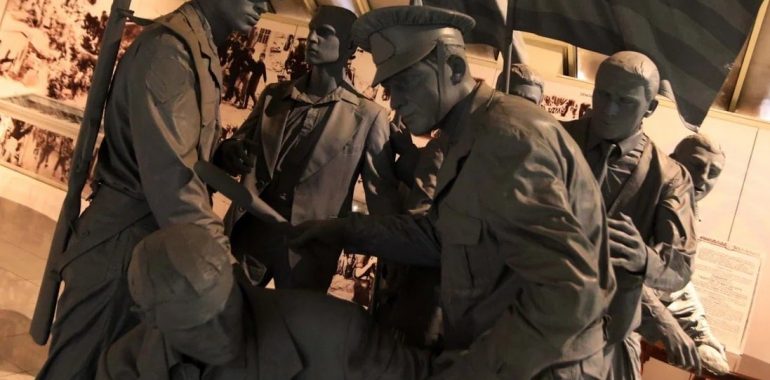EOKA’s Legacy: Cyprus Marks 70 Years of Struggle Against Colonial Rule

EOKA’s Legacy: Cyprus Marks 70 Years of Struggle Against Colonial Rule
April 1, 2025, marks 70 years since the commencement of the EOKA (National Organization of Cypriot Fighters) struggle against British colonial rule in Cyprus from 1955 to 1959. Its goal was to achieve Enosis (union with Greece).
“A glorious, revolutionary four-year period, which is acknowledged as the top historical milestone in the modern history of our homeland,” Cyprus’ Education Minister Athena Michaelidou said on Monday.
In a message to mark the day, read out in schools, Michaelidou said the desire for freedom and for unification with Greece united the people and clergy.
The uprising, she added, was a decisive action of collective consciousness, which led to independence and established the Republic of Cyprus as a sovereign state.
“We have a duty to proceed in unity, in order to secure the course of Cyprus as a modern, European state, and the continuation of Cypriot Hellenism in a free, reunified country,” Michaelidou said.
She added that the younger generation had a duty to lead this new struggle for peace and human rights, putting the knowledge passed on by their teachers to good use.
“This will be the greatest justification of the sacrifice of all our country’s heroes,” the education minister said.
Greece marks EOKA Struggle at schools
Greece’s Education Minister Sofia Zacharaki announced on Monday that all middle and senior schools will now commemorate the EOKA struggle for Cyprus’ independence.
A new directive sent to schools mandates a two-hour educational tribute on Tuesday, April 1, marking the 70th anniversary of the 1955 Cypriot uprising against British rule.
The initiative aims to educate students on Cyprus’ history and cultural heritage.
The history of EOKA in Cyprus

EOKA was headed by Georgios Grivas, a Greek Army officer, World War I and World War II veteran. During the Axis occupation of Greece in World War II, he led a small, anti-communist resistance group, named Organization X.
Grivas assumed the nom de guerre Digenis in direct reference to the legendary Byzantine Digenis Akritas, who repelled invaders from the Byzantine Empire. Second in command in EOKA was Grigoris Afxentiou, also a former officer of the Greek army.
Grivas’ goal was to subject the British to continued relentless harassment, making it clear to them that occupation carried a price, while keeping Enosis on the international diplomatic agenda.
The armed struggle started on the night of 29 March – April 1955. A total of 18 bomb attacks occurred in various locations across the island.
The guerrilla movement carried out attacks, bombings, and assassinations targeting British forces, infrastructure, and even Greek Cypriots who opposed them.
EOKA’s campaign pressured Britain into negotiating Cyprus’s future. The movement gained international attention, particularly in Greece and the United Nations, highlighting Cypriot demands for self-determination. By 1959, despite failing to achieve Enosis, the London-Zurich Agreements led to Cyprus’ independence in 1960. EOKA also played a key role in shaping Cypriot national identity, strengthening Greek nationalism on the island.
The British implemented harsh countermeasures, including mass arrests, curfews, and torture of suspected EOKA members. Britain also recruited Turkish Cypriots into security forces, intensifying divisions. By 1957, the British executed captured fighters and deported Grivas, weakening EOKA’s operations. However, their inability to completely suppress the rebellion forced Britain into negotiations.
Despite its military efforts, EOKA failed to achieve full union with Greece, as Turkish Cypriot opposition and British interests led to a compromise—independence instead of Enosis. The campaign also deepened ethnic tensions between Greek and Turkish Cypriots. Turkish Cypriots, fearing Greek dominance, formed the TMT (Türk Mukavemet Teşkilatı) in response, leading to violent intercommunal clashes.